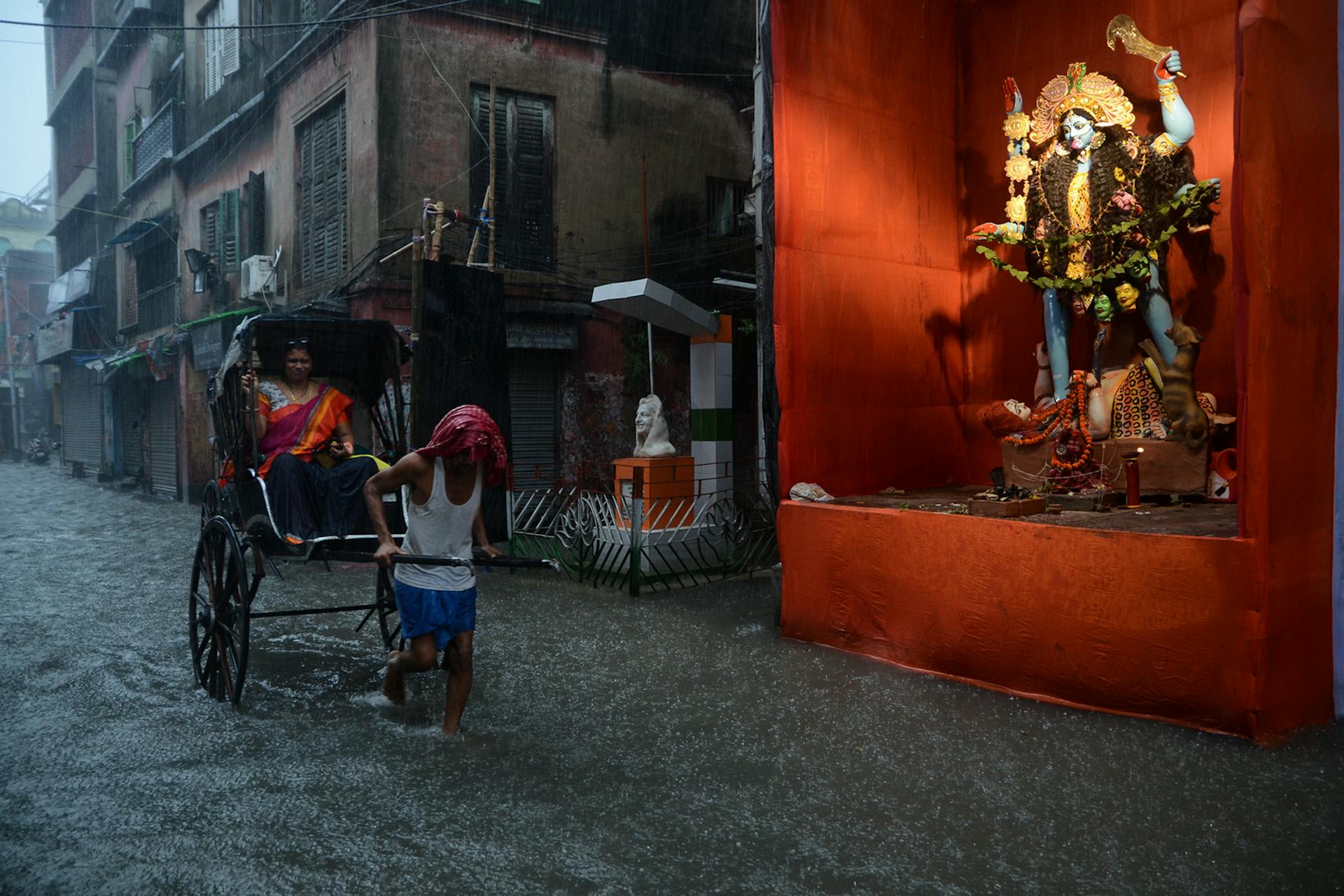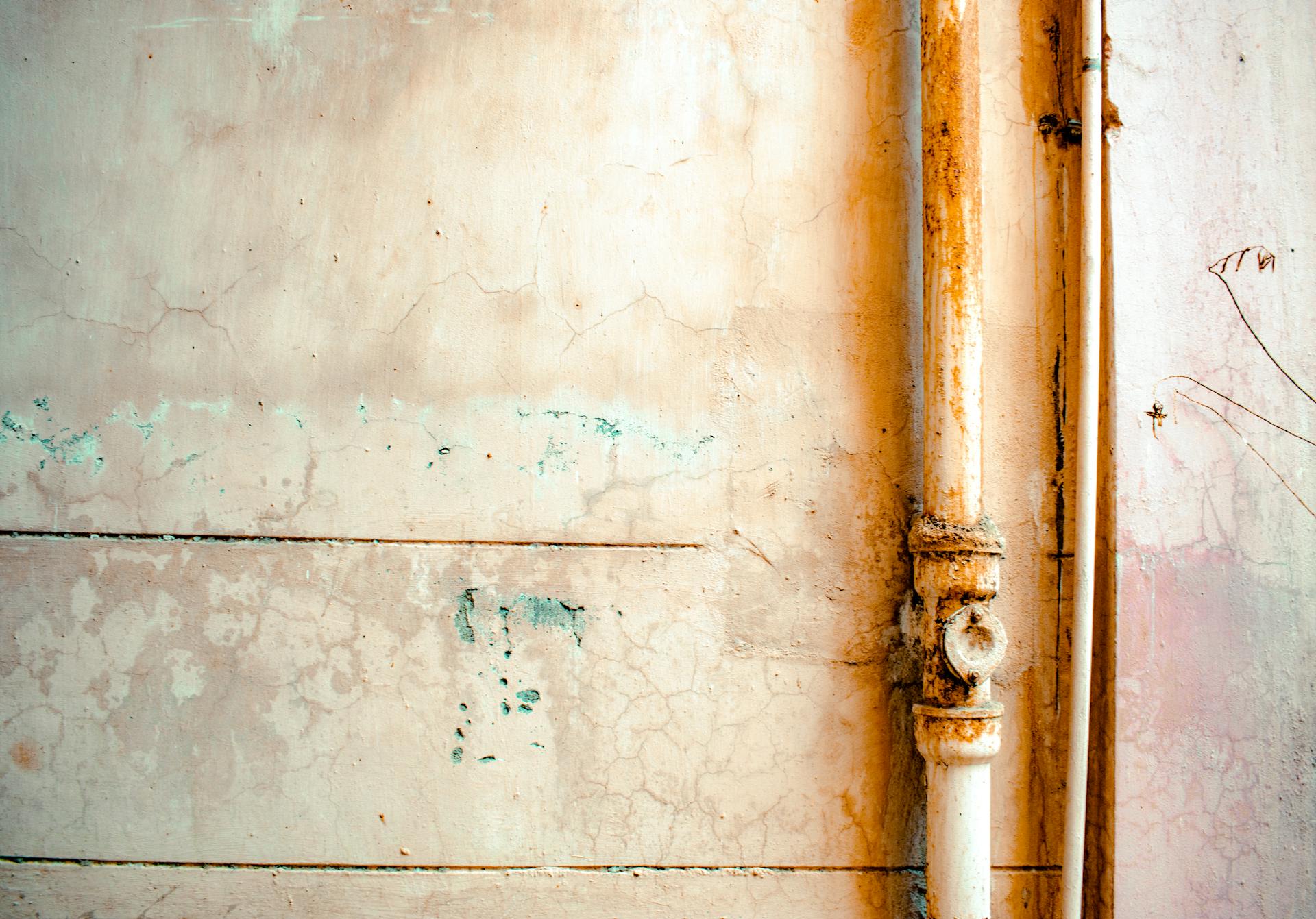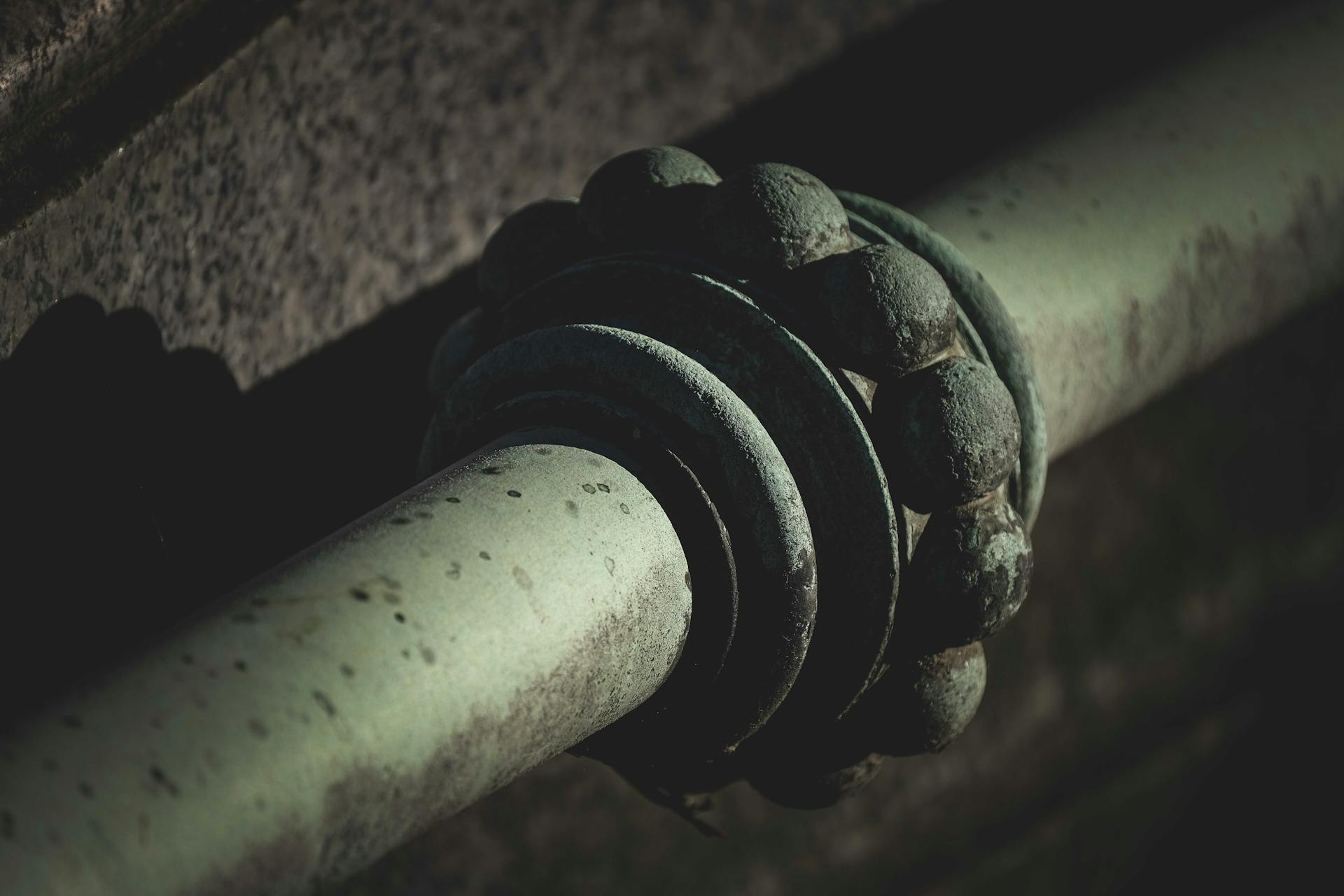
One of the most common problems property owners face during the winter is burst pipes. Pipes can freeze and then burst due to the expansion of water as it turns to ice. When water freezes, it expands by about 9%. This expansion puts a tremendous amount of pressure on the pipes, and if the pipes are not strong enough, they will crack or break. The result is a costly repair bill and, in some cases, extensive damage to the property.
There are a number of factors that contribute to why pipes burst in the winter. The first is the temperature. Obviously, the colder it is outside, the greater the chance that pipes will freeze. But even moderately cold temperatures can cause problems. Pipes are typically made of metal, which is a good conductor of heat. So, even if the air temperature outside is only in the 20s, the pipes can still freeze if they are exposed to drafts or if they are in an unheated area of the property, such as an attic or crawl space.
Another factor that contributes to burst pipes is the water pressure. When water freezes, it expands. This expansion puts pressure on the pipes. The higher the water pressure, the greater the chance that the pipes will burst. This is why it's important to have a professional plumber inspect your property's plumbing system and make sure that the pressure is not too high.
Finally, the type of pipe material can also contribute to why pipes burst in the winter. Some materials, such as copper and galvanized steel, are more resistant to freezing than others, such as plastic. However, even the strongest pipe materials can crack or break if the water pressure is too high or if the pipes are exposed to extremely cold temperatures.
The best way to prevent burst pipes is to take some simple precautionary measures. Insulate any exposed pipes, such as those in the attic, crawl space, or garage. Use heat tape or pipe sleeves to warm the pipes. Keep the inside temperature of your home at least 65 degrees, even if you are away. And, have a professional plumber inspect your property's plumbing system to ensure that the water pressure is not too high.
Broaden your view: Rv Bubble Burst
What are the most common causes of pipe bursts during winter?
Pipe bursts during winter are most commonly caused by frozen water in the pipes. When water freezes, it expands and exerts pressure on the pipes it is in. This pressure can cause the pipes to burst. In addition, as water freezes and thaws, it can cause the pipes to shift, which can also lead to pipe bursts.
There are a number of ways to prevent pipes from freezing and bursting during winter. One is to keep the indoor temperature at a consistent level - not too cold and not too warm. This will help to minimize the temperature difference between the indoor and outdoor air, and reduce the risk of the pipes freezing. Another way to prevent pipe bursts is to insulate the pipes, especially those that are exposed to the cold air. This can be done with pipe sleeves, insulation tape, or even newspapers. Finally, it is important to allow a small trickle of water to run through the pipes at all times during winter. This will help to keep the water moving and prevent it from freezing.
If a pipe does burst, it is important to take action immediately. First, turn off the water to the affected area. This will help to prevent further water damage. Next, clean up any water that has been released. This will help to prevent mold and mildew from forming. Finally, call a professional to repair the pipe. Pipes can be very difficult to repair, and it is best to leave it to the experts.
Worth a look: Watch Beyblade Burst Evolution
How can I prevent my pipes from freezing and bursting?
The best way to prevent your pipes from freezing and bursting is to take some simple steps to insulate them. You can start by wrapping any exposed pipes in foam insulation. You can also add insulation to your attic and crawl spaces to keep the heat in your home from escaping and causing your pipes to freeze. In addition, you should keep your thermostat set to at least 55 degrees Fahrenheit, even when you're away from home, to help prevent your pipes from freezing. And, finally, make sure to disconnect any hoses from outside faucets and drain them before the cold weather sets in. By taking these simple steps, you can help prevent your pipes from freezing and bursting this winter.
Recommended read: Home Depot Cut Pvc Pipe
What are the consequences of a pipe burst?
If a pipe bursts in your home, the consequences can be serious. A pipe burst can cause extensive water damage to your home, as well as mold and mildew growth. It can also lead to higher water bills, as you'll be responsible for paying for the repairs to the pipe, as well as any water that was lost. In some cases, a pipe burst can also cause sewage to back up into your home, which can be a health hazard. If you have a pipe burst, it's important to call a plumber right away to have the problem fixed.
Additional reading: Should I Water My Lawn in Winter?
How do I know if my pipes are frozen?
If your pipes are frozen, you may notice that the water pressure in your home is lower than usual, or there is no water coming out of your taps at all. If your pipes are frozen, it is important to take action immediately to prevent them from bursting. Here are a few things you can do to thaw your pipes:
1. Turn on the faucets in your home. This will help release any built-up pressure in the pipes and help prevent them from bursting.
2. Apply heat to the frozen sections of pipe. You can use a hair dryer, heating pad, or space heater. Do not use an open flame, such as a torch, as this could cause the pipes to burst.
3. Wrap the frozen sections of pipe in towels soaked in hot water. This will help speed up the thawing process.
4. Once the ice has melted, keep the faucets open until water is flowing freely from them. This will help prevent any remaining water in the pipes from refreezing.
If you cannot thaw your pipes on your own, you may need to call a plumber. Frozen pipes can be a serious problem, so it is important to take action immediately to prevent any damage to your home.
For another approach, see: Car Washes Open
What should I do if I think my pipes are frozen?
If you think your pipes are frozen, it is important to take immediate action to thaw them out and prevent any further damage. Some signs that your pipes may be frozen include:
-Water not flowing from taps
-Frost on pipes or in cupboards where pipes are located
-Pipe leaks
- unconventional noises coming from your pipes.
If you have any of these signs, take the following steps:
-Turn off any water valves that lead to the frozen pipes
-Open faucets to allow thawing water to escape
- Use a hairdryer, trouble light, or any other safe heat source to thaw the frozen pipe. Start from the faucet end and work your way towards the frozen section.
-Once the water is flowing again, turn on the water valves and check all faucets for any leaks.
If your pipes have already burst, unfortunately there is not much you can do on your own and you will need to call a professional. In the meantime, turn off the water valves and open all faucets to release any pressure in the system and minimize further water damage.
See what others are reading: Does Renters Insurance Cover Frozen Pipes
How do I thaw a frozen pipe?
If a pipe has burst and is spraying water everywhere, it must be thawed immediately to prevent any further damage. Shut off the water at the main valve, then open all the valves and faucets in the affected area to relieve pressure. If you can’t reach the main valve, turn off the water at the breaker.
Once the water is off, apply heat to the frozen pipe. You can use a hair dryer, heat lamp, space heater, or portable heater. Apply heat until full water pressure is restored. If you’re unable to thaw the pipe with heat, you may need to call a plumber.
Do not use a flame or torch to thaw a pipe. This is a dangerous fire hazard and can also damage the pipe.
For more insights, see: Thaw Naturally
What is the best way to insulate my pipes to prevent them from freezing?
There are a number of ways to insulate your pipes to prevent them from freezing. Some of the most common methods include wrapping them in insulation material, such as foam insulation, pipe insulation, or electrical tape. You can also purchase a pipe insulation kit from your local hardware store. Another method is to raise the temperature in your home, which can be done by turning up the heat, opening doors and windows, or using a space heater. If you have a crawl space or basement, you can insulate the floor above it with blankets or newspapers. Finally, you can also use a water heater blanket to wrap around your water heater.
Additional reading: Solar Water Heater Work
What are some of the signs that a pipe may be about to burst?
If you notice any of the following signs, it may be an indication that a pipe is about to burst and you should take immediate action:
1. A sudden and significant decrease in water pressure. This could be caused by a blockage or obstruction somewhere in the pipe, which is preventing water from flowing through as usual. If left unchecked, the pressure could build up to the point where the pipe bursts.
2. Water leaking from the pipe, even if it's just a small trickle. This could be caused by a crack or hole in the pipe, which is allowing water to escape. If the leak is not repaired, it could grow larger and eventually cause the pipe to burst.
3. A loud banging or knocking sound coming from the pipe. This is caused by water traveling through the pipe at high speeds, which can create a lot of noise. If the banging noise is accompanied by a decrease in water pressure, it's a sign that the pipe is getting ready to burst.
4. A sudden increase in your water bill. This could be caused by a leak in the pipe, which is wasting water. If you see a sudden spike in your water usage, it's a good idea to check for leaks.
5. Visible cracks or damage to the pipe. This could be caused by normal wear and tear, or it could be the result of an accident. If you see any cracks or damage to your pipe, it's important to have it repaired as soon as possible to prevent a rupture.
If you notice any of these signs, it's important to take action immediately. Turn off the water to your home at the main shut-off valve, and call a professional plumber to come and repair the pipe.
Here's an interesting read: Buy Sahara Burst Juice
Can a frozen pipe be repaired?
Can a frozen pipe be repaired?
It is possible to repair a frozen pipe, but it is not always necessary. If the pipe has already burst, then the repair will be more extensive. For a small leak, you may be able to thaw the pipe and then patch the leak.
If the frozen pipe is on an exterior wall, then you will need to thaw the pipe as quickly as possible to prevent further damage. You can thaw a frozen pipe using a hairdryer, heat lamp, or by wrapping the pipe in towels soaked in hot water. Once the pipe is thawed, you can then repair the leak.
If the frozen pipe is on an interior wall, you may not need to thaw the pipe. If the leak is small, you can simply turn off the water to the pipe and wait for the thaw. Once the thaw occurs, the water will flow again and you can repair the leak.
It is important to know how to thaw a frozen pipe and how to repair a leak before attempting to do so. If you are not sure how to thaw a frozen pipe or how to repair a leak, then you should contact a professional plumber for assistance.
For more insights, see: When Will Crypto Winter End
Frequently Asked Questions
Why do pipes burst in winter?
The increase in water molecule size due to freezing temperatures and pressure buildup can cause pipes to burst.
What happens when a water pipe bursts?
The water will come out in all directions as pressure builds. It is important to stay away from the area as the water can be highly dangerous. If you are in the path of the water, seek shelter immediately.
What happens when water freezes inside pipes?
When water freezes inside pipes, the water molecules expand. The ice then expands and pushes the water toward the faucet, causing a significant amount of pressure buildup between the ice blockage inside the pipe and the faucet. Eventually, the pipe can’t take the pressure buildup and it bursts.
What causes a broken faucet to burst?
Bursting can happen when the pipe is unable to withstand the pressure from the expanding ice. The most common cause of a burst faucet is frozen water buildup inside the pipe. This can be due to repeated freezing and thawing, or sudden changes in water temperature.
When do water pipes burst in winter?
Water pipes burst most often in winter, when the temperature of the outside atmosphere reaches zero degrees Celsius. This is because water expands as it turns to ice, and the pressure inside a pipe can become too much for it to sustain.
Sources
- https://www.surex.com/blog/how-to-prevent-pipes-from-freezing
- https://www.alwaysreadyhq.com/534/why-do-pipes-burst-in-the-winter/
- https://www.independent.ie/news/explainer-how-to-prevent-pipes-from-freezing-and-bursting-as-arctic-blast-brings-cold-snap-42196552.html
- https://www.restorationusa.org/pipe-burst-causes/
- https://www.crowngroupohio.com/blog/plumbing-service/why-do-pipes-sometimes-burst-in-winter/
- https://www.britishgas.co.uk/the-source/beat-the-weather/prevent-frozen-pipes.html
- https://homezesty.com/why-do-pipes-burst-in-the-winter/
- https://www.bmscat.com/2019/01/what-causes-water-pipes-to-burst-in-the-winter-months/
- https://www.alpharettawaterdamageremoval.com/winter-pipe-bursts-preventing-handling-them/
- https://www.livescience.com/43408-why-do-freezing-pipes-burst.html
- https://plumbingsniper.com/how-to-prevent-pipes-from-bursting/
- https://www.knowswhy.com/why-do-pipes-burst-in-the-winter/
- https://www.hicofsi.org/blog/2018/12/28/ask-the-expert-why-do-pipes-burst-in-the-winter
- https://www.wintershomeservices.com/blog/2018/november/why-do-water-pipes-burst-in-the-winter-/
- https://fletchersplumbing.net/blog/2021/01/most-common-causes-of-pipe-bursts/
Featured Images: pexels.com


